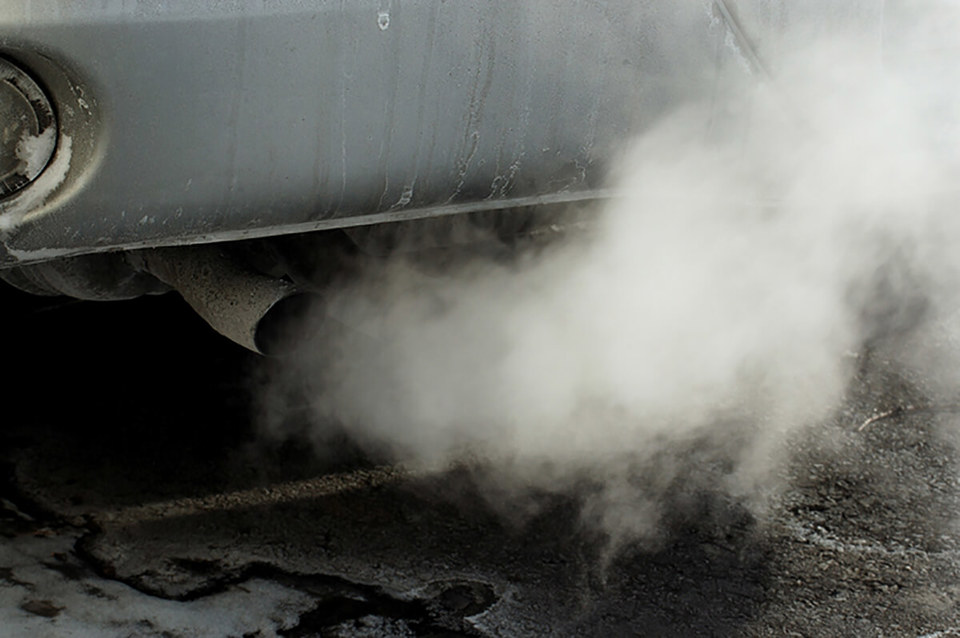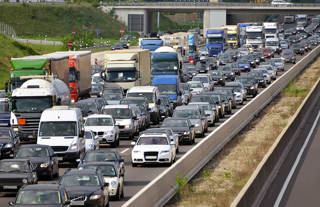The Government says clean air funding could be available for locally targeted scrappage schemes and the retrofitting of vans and trucks to LPG.
Local authorities have access to a £255 million Implementation Fund for air quality plans, while a £220m Clean Air Fund, which local authorities with the most challenging pollution problems are able to bid for, aims to reduce the impact of their local plans on individuals and businesses.
In its response to a consultation, launched last November, the Department for Environment, Food and Rural Affairs (Defra) has now offered further detail on how funding could support fleet operators.
It says that the Clean Air Fund could support a wide range of measures including, but not limited to:
• Community-wide measures such as road layout changes, changes to cycling or walking infrastructure, improved public transport, park and ride schemes, promoting car clubs, vehicle retrofit; or better travel planning services.
• Measures aimed directly at supporting individuals or businesses such as local travel discounts (which could be linked to smart ticketing), cycle to work schemes, local scrappage schemes or support for upgrading to a new vehicle (including ultra-low emission vehicles).
Fleet News revealed earlier this week that Derby City Council had challenged the Government to support a targeted local scrappage scheme in the city, arguing that a clean air zone will not help it achieve air quality compliance.
The Government report to the consultation recognises that van drivers, which includes sole traders and small businesses, could be impacted by local air quality measures in particular as the cost of upgrading to a compliant vehicle can be prohibitively expensive and options are restricted.
Potential mitigation measures, says Defra, could include support for conversion to LPG, support for upgrading to electric vehicles or local upgrade schemes.
Retrofitting vehicles with pollution-reducing technology can offer a relatively low cost alternative to purchasing new low emission vehicles, says Defra.
It also reduces the incentive to relocate dirtier vehicles away from areas with the worst air quality problems and thus reduces overall emissions of nitrogen oxides.
The Government believes that the continued development, promotion and implementation of innovative retrofit technology will be an important element of reducing nitrogen dioxide concentrations in the short term and could also play a key role in supporting individuals and businesses impacted by local air quality measures.
In terms of upgrading vehicles, rather than retrofitting, it highlights a scheme introduced by Barnsley, Doncaster, Rotherham and Sheffield (BDRS) Combined Authority, which has been encouraging electric vehicle uptake for businesses, as a potential model for others to follow.
BDRS, with support from the Local Sustainable Travel Fund, has worked with businesses to encourage the take-up of electric vehicles, through grants towards the cost of electric vans or cars and towards the cost of installing charging points at business premises.
A total of 10 businesses took delivery of an electric vehicle during 2014/15, following the appointment of Npower as delivery partner.
Funding from the Clean Air Fund could help businesses upgrade to vehicles which would not be liable to a charge in a charging Clean Air Zone, for instance by offering businesses the chance to test vehicles before investing, subsidising electricity or provide preferential parking to electric vehicles, it says.
However, bids for electric vehicle support through the Clean Air Fund would need to demonstrate that existing funding from the Office for Low Emission Vehicles (OLEV) could not be used and that there are no State Aid concerns.
Meanwhile, it also recognises that potential air quality measures such as charging zones or access restrictions could also impact the freight and heavy duty sector.
Potential measures to support freight operators to upgrade their vehicle or change their current patterns could include, it says, freight consolidation centres, improving freight deliveries e.g. by changing mode, time of delivery or route, investing in alternative fuel refuelling or HGV retrofit.
Furthermore, the Government says that the consultation showed there was some support for a discount (with sunset period) for businesses working or located within a charging Clean Air Zone, particularly for small and medium-sized businesses.
It was suggested that such exemptions or discounts could be linked to the provision of a clear plan towards compliance.
Although the case for exemptions or discounts for small businesses was made, it was also noted that the group is so large that it is difficult to see how such exemptions would not lead to additional time to compliance, says Defra.
Local authorities, it says, may consider ways in which the charge could be reduced for groups they identify as facing particular challenges. This could be based, for example, on the location of such businesses in reference to the zone.
However, any local exemptions or discounts must ensure that the benefits of the zone are maximised and that achievement of outcomes of each zone are not slowed down.
The Government also stressed that the Greater London Authority has separate funding arrangements in place. London received a £5.7 billion settlement from the Government for the period between 2016 and 2021 and has received a further £92m for other measures to address air pollution, including low emission buses.
Reflecting that previous funding to London, the Clean Air Fund is for local authorities outside London, it said.
The Government has also announced that more than £40m from the £255m Implementation Fund has been awarded to support local authorities take action as soon as possible to improve air quality.
This includes:
- £11.7m to the 28 local authorities with the biggest air quality challenges to help carry out the work needed to develop air quality plans, including securing resource and expertise.
- £24.5m to the same 28 local areas to support a range of measures to take action locally. Examples include installing electric charge point hubs in car parks; junction improvements; bus priority measures; building cycle routes; incentivising ultra-low emission taxis through licensing schemes and leasing electric vehicles; and traffic management and monitoring systems.
- £2.4m from the 2017/18 Air Quality Grant for local community projects to tackle air quality at a grass roots level. This comes in addition to £3.7m already awarded in last year’s Air Quality Grant, which included an award winning project taken forward by Westminster City Council to provide advice and toolkits for small and medium businesses to reduce transport emissions from deliveries associated with their operations.
- £1.65m to support the 33 local authorities that have been asked to conduct targeted feasibility studies to identify measures that could bring forward compliance dates within the shortest possible time
Environment minister Thérèse Coffey said: "We have been clear that local leaders are best placed to develop innovative plans that rapidly meet the needs of their communities. Today’s funding demonstrates the Government’s commitment to support the local momentum needed and continue to improve our air now and for future generations.
"Improving air quality is about more than just tackling emissions from transport, so later this year we will publish a comprehensive Clean Air Strategy. This will set out how we will address all forms of air pollution, delivering cleaner air for the whole country."
However, ClientEarth head of UK public affairs Simon Alcock said: "This is a pitiful response from the Government, which is yet again shirking its responsibility to clean up our country’s harmful and illegal air pollution. The proposal outlined today is of no value to anybody. Michael Gove has passed the buck yet again to local councils to see if they can do his work for him.
"No extra money has been allocated to the fund, despite the fact that the number of councils expected to come up with air quality plans has more than doubled following ClientEarth’s recent victory in the High Court. And the car industry, which helped get us into this mess is still not paying a single penny to help get us out of it.”
The Government, in its consultation response, has however, welcomed manufacturer led scrappage schemes as a way to help some owners of older vehicles to purchase a cleaner vehicle. It also says it will continue to work with manufacturers to encourage these schemes to be available to support people to upgrade their vehicle.






















Login to comment
Comments
No comments have been made yet.